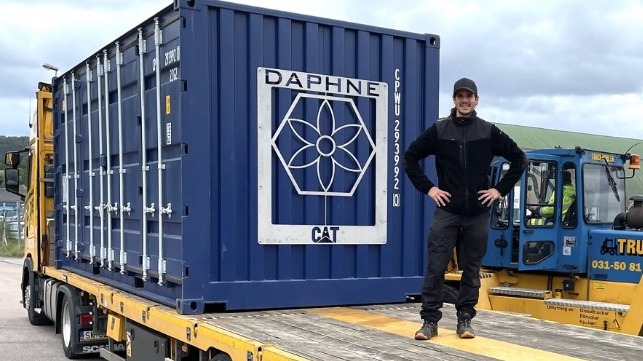Multi-Pollutant Scrubber Attracts Some of Shipping's Biggest Names

The Swiss scrubber startup Daphne Technology has secured investments from some of the biggest names in shipping and energy in its latest funding round. Shell, Trafigura, AET and Saudi Aramco have all committed to supporting Daphne's proprietary multi-pollutant scrubber, which can remove a broad range of undesirable gases from any exhaust stream.
Daphne uses new technology to remove pollutants like NOx and methane from the exhaust from any fuel type - potentially extending the utility of fossil fuels as the world transitions to a low-carbon future. In particular, it could assist in improving the greenhouse gas profile of LNG by removing methane slip (uncombusted methane) from the exhaust stream.
"As a believer in LNG as a longer-term solution in maritime decarbonization, we have been looking for technologies to reduce the methane slip and improve the 'tank to wake' decarbonization environment. Therefore, aside from being an investor, we will also deploy and test the technology across our vessels which utilize LNG as a fuel source," said Capt. Rajalingam Subramaniam, AET's president and CEO.
According to Daphne, the system can break down the pollutants and convert them into non-hazardous byproducts, which are either released into the environment or transformed into usable products. The company says that it is currently pursuing commercial deployment and scaleup, and it is aiming for "landmark projects."
Shell led the $11 million capital raise, joined by Trafigura and AET. It was the second round of funding since Daphne spun off from the Swiss Federal Technical Institute in 2018.
"The ability to capture emissions from hydrocarbon maritime fuels and meaningfully reduce emissions in the short-term is a critical component of the industry’s transition to net zero emissions, in which multiple fuels and multiple abatement solutions will be required," said Margaux Moore, Head of Energy Transition Research at Trafigura. "Daphne Technology’s innovative approach has the potential to become a pivotal technology for the maritime industry."
